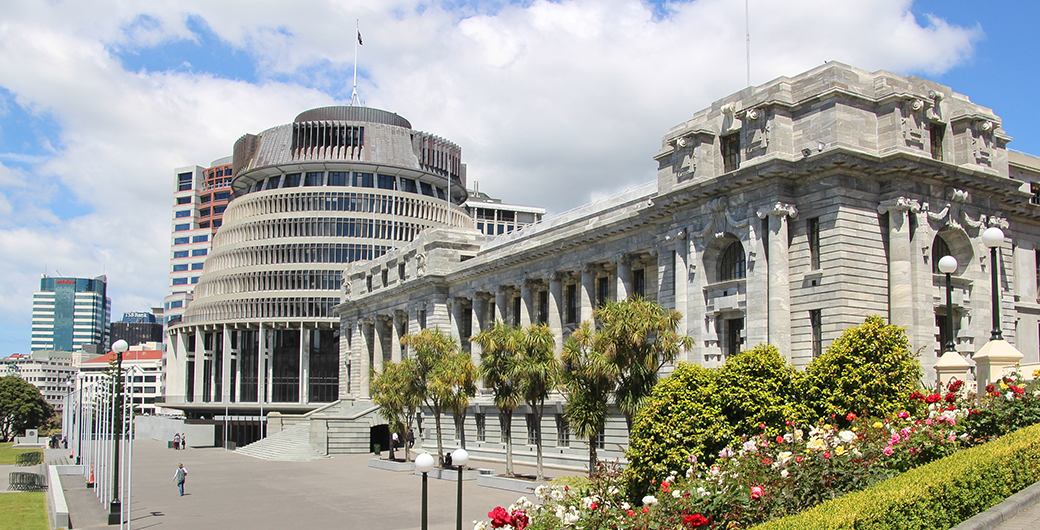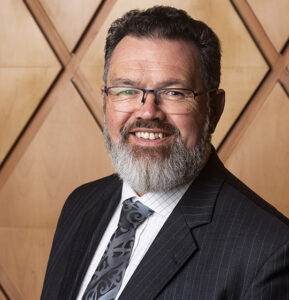IPANZ Conference speech: Justice Joe Williams on Crown/Māori Relations and a 200-year search for Partnership
28 March 2022
● News and media
How can Aotearoa New Zealand honour the Treaty of Waitangi and build real partnerships between Māori and the Crown? What would those partnerships look like, and how can they recognise and overcome the inertia, false starts, and barriers from the past?
The Hon Justice Sir Joe Williams was keynote speaker at the recent Institute of Public Administration of New Zealand (IPANZ) conference, speaking on the theme of Crown/Māori Relations: a 200-year search for Partnership.

Justice Williams has served as a judge of the New Zealand Supreme Court since 2008, and was previously chair of the Waitangi Tribunal, and chief judge of the Māori Land Court. Addressing a largely public sector audience he spoke of his own upbringing, and of the “constitutional amnesia” and the “reluctant search for ourselves” that has defined periods of history since the signing of the Treaty of Waitangi in 1840.
He situated Aotearoa New Zealand in time as a country still struggling to make the promise of the Treaty of Waitangi a reality after almost 200 years, and in space as a nation shifting its mindset from ‘an island off the coast of England’ to one that was accepting its place as part of Polynesia.
He stressed that ‘partnership’ is not about consultation or just listening – it’s about genuine transfer of power and co-creating something new. Noting that 2040 will be the 200th anniversary of Te Tiriti, he concluded that if Aotearoa comes to a “place of peace”, “We will be the country in 2040 most full of shared optimism”.
Sally Washington, ANZSOG’s executive Director for Aotearoa attended the conference, and said “It’s rare for a speech at a public administration event to bring me to tears. This one did. Ngā mihi nui IPANZ for allowing ANZSOG to share this important oration.”
You can watch his address here.
Overcoming historical amnesia
Justice Williams began by outlining the history of Aotearoa New Zealand’s struggles to make the promise of the Treaty of Waitangi (the 1840 agreements between the British Crown and Māori chiefs that promised Māori rights to land and self-government) a reality.
“But the fact that we are struggling is a positive. Our journey in this country has not been a linear path – more like a narrative constructed entirely in rhyming couplets,” he said.
He said that the challenges in Aotearoa New Zealand had been compounded by historical amnesia which saw governments forget the lessons from past efforts at partnership building.
“For 150 years the potential for partnerships between Crown and Māori repeatedly emerged and then sank, floated by Māori and then torpedoed by the government of the day,” he said.
“The Māori Affairs Department and Economic Advancement Act of 1945, Māori councils of the 1960s all of which sank. Every one of these initiatives was greeted by Māori with enthusiasm, embraced and run with and then choked.”
He spoke of growing up in Aotearoa New Zealand at a time when Māori were ‘marginalised, poor and seen as a problem or a drain on the national character’.
“People say the past is a different country – I grew up in the past. In the 1960s and 1970 we could have been a small island just off the coast of England. We moved more to the mid-Atlantic with US influence, but there was no sense that we were a nation in the Pacific.
“In the 1970s and 1980s we began, as a country, a reluctant search for ourselves. This was the beginning of decolonisation, as a mindset. We are Polynesians – all of us.”
“For Māori in the 1970s and 80s it meant reimagining ourselves, with government help. It taught us young Māori to be proud of who we were.”
He said that the current moment in Aotearoa New Zealand was one ‘where the old is fading and the new is yet to be fully imagined’.
“That’s where I think we are and that is why I can be full of hope’.
Reweaving social fabric through partnerships
“The Treaty settlement process is a process of reconstruction, of reweaving a fabric that had been deliberately unpicked, often by well-meaning public servants who believed that the weave was a handicap to the people whose weave it was,” he said
“The Treaty settlement process is an attempt to reverse that. Treaty settlements have generated high degrees of satisfaction among iwi and also high levels of pessimism because the social unravelling continues.
“History rhymes and we need to understand that in reconstructing these partnerships we are addressing the despair of individual Māori too. By finding Māori solutions to Māori problems we are both reweaving the fabric of Māori society and saving individual Māori in the process.”
He said that society was still at a point where Māori disadvantage was seen as something to be managed not ended, and that ending it could only happen with both public sector and the Māori community involved.
“In the 1970s and 1980s, seven per cent of Māori boys under-15 were removed from families, 85% ended up in jail – their sons followed them and so, increasingly, did their daughters.
“But there is hope. Convictions and incarcerations for Māori under-25 fell from roughly 3 per cent a year, year on year, in the 1990s to 0.5 per cent in the 2010s. A lot of kids don’t go to jail any more. How much of this a result of ‘mana Māori’ and how much from enlightened judges and other attempts at policy?
He said that in Aotearoa New Zealand successful partnerships – like those around managing the Waikato and Whanganui river – had been constructed incrementally and locally.
“No one is saying ‘here are the rules go and implement them’, it is purely organic and each negotiation produces its own version of its own partnership.
“Perhaps if there is anything wrong with the incremental approach, which I generally admire because I think it is ground up, is that if we do incremental with amnesia we are bound to mess it up.”
So, what is a Treaty Partnership? First what it’s not: it’s not consultation, not Māori being asked to provide advice to the Crown, it’s not about the public service listening and then saying here’s our decision.
“On the other hand, a process that transfers power and authority is consistent with the partnership framework, but this is scary for a public service anywhere in the world which is antithetic to the process of giving up anything.”
Building trust and finding a place in Polynesia
So why are these partnerships so difficult? Justice Williams said that the answer was embedded in the structures of government, and the difficulty governments had in handing over real power and control.
“Government is not evil, individuals within government are not evil, they are well-meaning and often quite progressive. The problem is structural. That does tend to let you off the hook as public servants, but it is important to stress this!”
“A canoe with a deep hull can go in a straight line very effectively but you can’t turn it. A shallow hull is harder to paddle but you can turn it more quickly. Our problem is that over generations we have continually deepened the hull of government, so that even good paddlers and expert steerers struggle to shift this thing in another direction. That’s the structural problem you confront and you have to understand that.”
“There are modern attempts at partnership that seem to be really progressive and increasingly sophisticated, such as, Kaianga Ora, Te Arawhiti, and the Māori Health Authority. These are a domesticated version of partnerships, increasingly distant from the Crown but not on the other side of the table yet.
He said that partnerships could only work where there was trust – and that was hard when it was required to shift power across the table.
“Bear in mind both sides of the table need decolonising, sometimes the other side of the table does not have any more imagination than you do.
“Being colonised is a state of mind – it really is. It’s an aversion to pluralism and difference, it’s one law for all – as long as it is my law, one way for all – as long as it is my way,” he said.
“The hope is that Treaty and partnership liberates us from this one-sided straitjacket from the past, and by us I’m not just talking about Māori, and frees us to imagine anew, unfenced in. It allows Māori to engage without obsession with grievance and loss, to assume an equal investment in a single project.”
“But it offers us all the gift of place in Polynesia, by asking us to embrace our identity as Polynesians without losing the heritage of the west in the process. By the time we get to that point partnership is probably going to be easy and we will have found peace from a conflicted past.”
